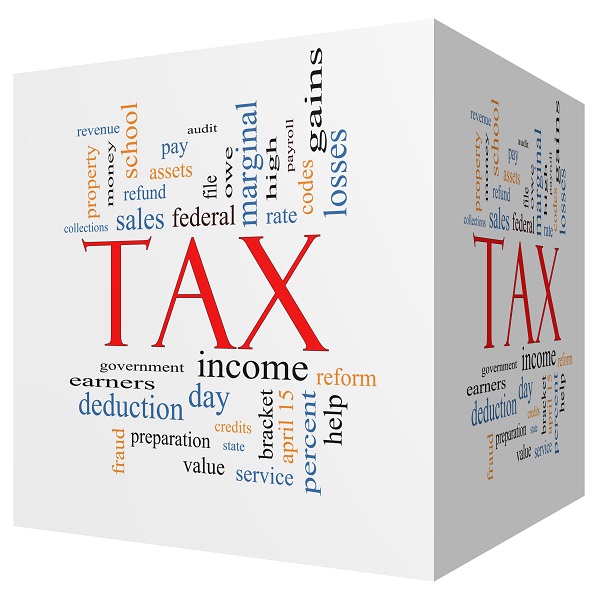CLE Presentation by Shamsey Oloko
AN ANALYSIS OF THE TAX CUTS AND JOBS ACT
January 2018
AN ANALYSIS OF THE TAX CUTS AND JOBS ACT
On December 22, 2017, after much, well-publicized legislative skirmishes, President Donald Trump signed into law H.R. 1, otherwise known as the “Tax Cuts and Jobs Act.” Provisions affecting individuals are generally effective beginning December 31, 2017 and expire on December 31, 2025. Most business-related provisions are permanent and are effective beginning December 31, 2017.
This new law is, by all accounts, the most significant revisions to the U.S. tax code since 1986, affecting almost all individual and business taxpayers. Our firm’s general assessment of the new law will therefore be a two-part series: this first part covers changes to individual taxpayers, and the second part will cover changes to business taxpayers.
Dealing With The IRS Part 2
Dealing with the IRS may be one of the most intimidating thoughts or notions for any American taxpayer. Everyone wants to know how to deal with the IRS when the time comes. Here are some tips if a taxpayer receives a notice from the IRS, thus necessitating some contact with the IRS.
The IRS typically sends a notice or a letter for a variety of reasons, including information about some specific issue related to a federal tax return or account, or information about changes to such an account. A notice may also request further information about some tax-related issue or request a payment.
Dealing With The IRS Part 1
Dealing with the IRS may be one of the most intimidating thoughts or notions for any American taxpayer. Everyone wants to know how to deal with the IRS when such unmentionable time arrives. Here are some tips for two common situations in which taxpayers may have to deal with the IRS. The first is the situation when a taxpayer simply has an inability to file a return and pay taxes; the second situation is the occurrence of an extensive delay in receiving an anticipated tax refund. Both may necessitate IRS contact. A qualified tax professional may offer the necessary guidance and assistance in these and many other tax-related scenarios.
Which State Has The Best Tax Climate?
The Tax Foundation is an independent tax policy nonprofit organization that has studied and researched tax policy since 1937. It reviewed the 2017 tax climates in each of the fifty states and ranked them overall based on five categories: corporate tax, individual income, sales tax, unemployment insurance tax, and property tax. In the near future, we will address the state tax climates of New York, New Jersey, and Connecticut.
The purpose of the Tax Foundation State Business Tax Climate Index is to enable business owners, policymakers, and taxpayers evaluate how their states’ tax systems compare to others. The Tax Foundation’s rankings are designed to show how well state tax systems are structured, rather than simply rank the states by the amount of taxes assessed.
Tax Professionals Provide Input For IRS Future State
At the end of 2016, as part of a concerted, continuous effort to gather feedback from the tax community and partner groups, the Internal Revenue Service announced that tax professionals attending the Nationwide Tax Forums provided valuable guidance to Future State efforts to improve taxpayer service by highlighting a number of areas of concern.
The 2016 tax forums held by the IRS in five cities held during July, August and September were attended by more than 10,700 tax professionals. IRS Tax Forums are three-day events that are intended to provide tax professionals with the most current information on federal and state tax issues. This information is presented by experts from the IRS and partner organizations through training seminars and workshops.
Public Awareness: “Taxes. Security. Together” Campaign
The Internal Revenue Service, the states, and the tax industry are working together in an unprecedented partnership to protect taxpayers’ federal and state tax accounts from identity thieves. The “Taxes. Security. Together” awareness campaign is an effort to better inform taxpayers about the need to protect personal, tax and financial data home and online.
The IRS, state tax agencies, and the tax industry also hosted a National Tax Security Awareness Week Dec. 5 to Dec. 8, 2016. In addition, it launched a Protect your Clients; Protect Yourself campaign to raise awareness among tax professionals that they too are increasingly the targets of criminals.
The (Trump’s) Net Operating Loss (NOL), Explained
At the beginning of October, the New York Times released pages from Donald Trump’s Connecticut, New Jersey and New York 1995 tax returns, apparently reflecting that the Donald declared “other income” of negative $916 million and was prepared to forego any federal income tax liability for up to 18 years by carrying forward this “net operating loss” (NOL). So what is a net operating loss?
The “What Ifs” for Struggling Taxpayers
Many of life’s events such as losing a job, foreclosure of a home or even forgiveness of a debt impact the payment of taxes. The tax law offers hope in these situations. As an example, if a taxpayer’s income decreases, he or she may be eligible for certain tax credits, such as the Earned Income Tax Credit. In this blog, We will present a list of quick answers to life event situations that have a potential impact on an individual’s tax burden. For more information see our blogs: Part 1 – What If: Job Related Life Events and Struggling Taxpayers; and Part 2 – What If: Debt Related Life Events and Struggling Taxpayers.
Choosing The Right Tax Attorney
There are many reasons for choosing a tax attorney. Some reasons are reactive or defensive, others are cost-preventive. It is more than wise to retain a tax attorney when:
- Subject to an audit or collection activity;
- Filing an appeal of a tax court decision;
- Trying to save money on behalf of a business; and
- Trying to take advantage of tax credits or deductions.
Choosing a tax attorney involves the assessment of various factors, which include the following:
Expertise:

